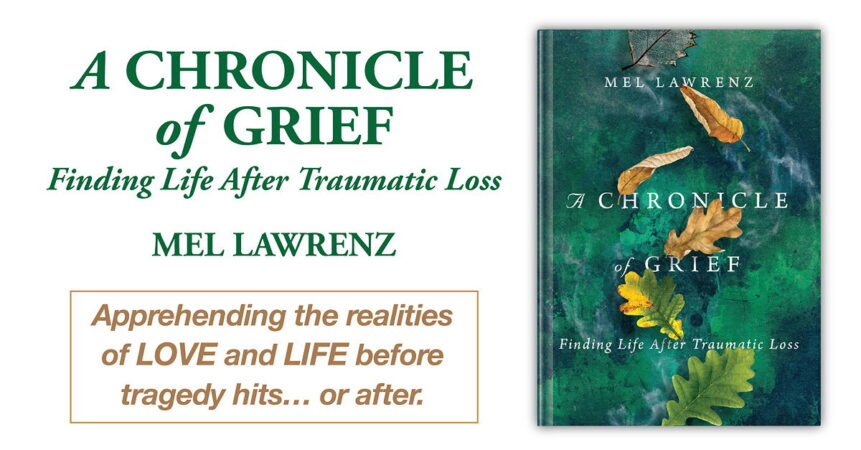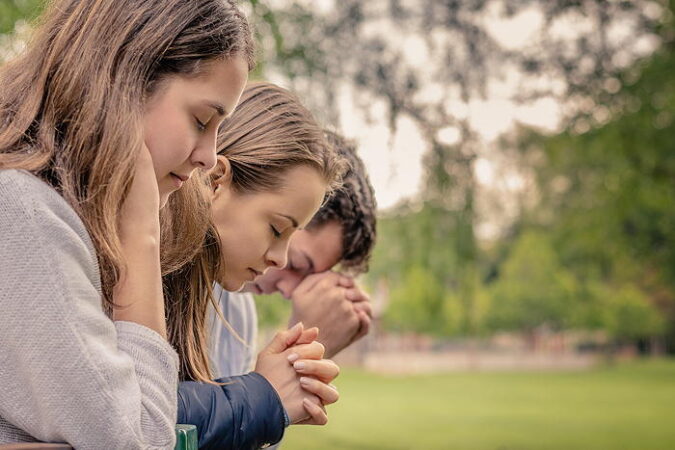Mel Lawrenz is Teaching Pastor at Elmbrook Church. His most recent book is about dealing with loss, A Chronicle of Grief: Finding Life After Traumatic Loss.
_____________________________________
“Now faith is confidence in what we hope for and assurance about what we do not see.” (Hebrews 11:1)
When my daughter was a baby and my wife would put her in my arms and leave the room, the baby’s head would shift, eyes would scan back and forth, brow would wrinkle, and then—most certainly—came that cry of distress. A cry that cut to the quick. I knew that she was thinking, “Mom has disappeared. She is gone. She has ceased to exist. And I will never ever see her again.” A baby does not have the cognitive ability to know that someone continues to exist even when the physical evidence is withdrawn. Babies cannot be “certain of what we do not see.”
But give the kid a couple of years and he or she will understand that the doorway to the next room is not a monster’s mouth swallowing up the next person to pass that way. He or she will even come to understand that Mom or Dad can be in Cincinnati or Los Angeles or London, and still exist; more importantly, that they still exist in relationship.
Not being visible is not the same as not being. And sometimes your relationship with someone is even stronger when there is some distance.To be human is to believe, holding in your consciousness a whole galaxy of realities that include the visible and the invisible. Not to believe, or being unwilling to believe, or thinking that believing is far too much to ask, is to tear out the heart of who we were made to be. It is to limit life to a kind of closet where facts are sorted on hangers and racks, instead of living that life in wide-open spaces that connect to unseen reality.
Some people think that one of the great debates in life is whether you are going to live your life by reason or by faith.
The reason-only way of life says, I can only base my life on the tangible, visible, measurable facts of life—as my reason sorts them out. My belief is in data; empirical conclusions are my creed. There is no truth apart from physical facts, so I don’t need to worry about the taboos and codes of people across the river from me, and I will certainly never impose any morality on them. To live is to be a realist, so I will not believe in what I cannot see, and I will not chase a God who obviously cannot be known.
This is, for its proponents, the sensible way to live. Sensible because it is based on senses.
The faith-only way of life can be equally risky. It says, I choose to be skeptical of all evidence. I will assume that most good beliefs are beyond rationality and will almost always seem irrational. Faith is inherently subjective, as it should be. Therefore, I experience faith, I believe what I choose to believe, and I don’t believe faith has any accountability to anyone or anything else—least of all to a body of supposed “facts.” It doesn’t matter if “my faith” contradicts the “my faith” of the guy next door, because we all have a right to “my faith.” Faith is more like dreams than data. But there is a third option.
Most people realize that everything we know of life, and everything that God points us to, assumes that life is a matter of faith and reason. Sometimes I come to believe something that I have come to understand. And oftentimes I come to understand something that I have come to believe first. But there is one reality, and in the end the facts will line up with faith.
[to be continued]

“profoundly moving and profoundly life giving”
“this book is extraordinary… full of insight and hope””beautifully written and searingly honest while offering hope for a life beyond loss”
